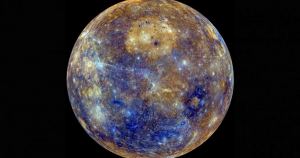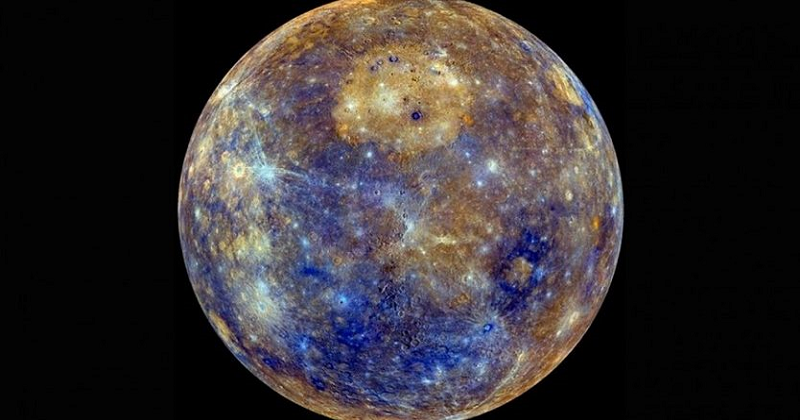
Volcanic Activity On Mercury Stopped About 3.5 Billion Years Ago, Study Reveals
Adding new insight into the geological evolution of Planet Mercury, a new research from North Carolina State University reveals that major volcanic activity on Mercury most likely ended about 3.5 billion years ago.
The findings by NC State University assistant professor and planetary geologist Paul Byrne and colleagues studied the planet Mercury’s geological evolution in particular and tried to find the results when rocky planets cool and contract in general.

“These new results validate 40-year-old predictions about global cooling and contraction shutting off volcanism,” Paul Byrne, lead author of the study. “Now that we can account for observations of the volcanic and tectonic properties of Mercury, we have a consistent story for its geological formation and evolution, as well as new insight into what happens when planetary bodies cool and contract.”
Experts say that there two kinds of volcanic activities – explosive volcanism and effusive volcanism. Explosive volcanic activities are more devastating in nature, often causes a violent event that can result in ash and debris from the eruption (such as the Mount Saint Helens eruption in 1980) while the effusive volcanism occurs when lava flows slowly and steadily spreads over a landscape. The effusive volcanism is what experts believe as a key process in the formation of any planet’s crusts.
Determining the ages of effusive volcanic deposits can shed light on the geological evolution of Mercury. For example, by comparison, this type of volcanic activity only stopped a few hundred million years ago on Venus and a few million years ago on Mars. On the other hand, effusive volcanic activity still takes place in many places on Earth today.
Hence, according to their results, major volcanism on Mercury stopped at around 3.5 billion years ago, in stark contrast to the volcanic ages found for Venus, Mars, and Earth. The team believes that the volcanic activity stopped because Mercury’s mantle lost its heat earlier than the other planets due to its smaller size. Consequently, Mercury’s surface cooled and contracted, covering any conduits where magma could come out again.
Until now, the duration of effusive volcanic activity on Mercury, made of the same materials as these other planets, had not been known. In this study, the researchers determined when the bulk of Mercury’s crust-forming volcanism ended by using photographs of the surface imaged by NASA’s MESSENGER mission.
The study was published in Geophysical Research Letters, with co-authors from the Carnegie Institution of Washington, Mount Holyoke College, the University of Georgia, Southwest Research Institute and Brown University.
Also Read: Watch NASA Cuts Off Live Feed From International Space Station As UFO Enters Earth’s Atmosphere